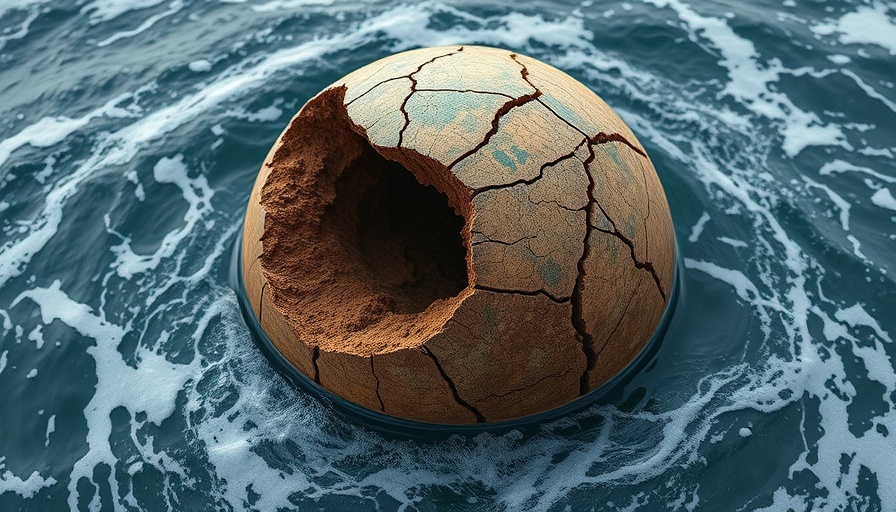
Understanding the Global Water Waste Crisis
In an age where environmental concern looms large, the global water waste crisis is a pressing issue that many of us overlook in our daily routines. With growing populations and increasing consumption, the demand on our limited water resources is at an all-time high. Water waste is not simply a matter of overuse; it refers specifically to untreated wastewater that is detrimental to both people and the environment.
Types of Wastewater: What You Should Know
Wastewater can be categorized into four main types: greywater, blackwater, yellow-water, and brown-water. Each type presents unique challenges and opportunities for recycling:
Greywater: This wastewater arises from sinks, showers, and washing machines and contains harmless soap residue. It can be reused for purposes like watering gardens.
Blackwater: Originating from toilets, it contains human waste and is the most hazardous type of wastewater. Despite its dangers, this water can be treated and repurposed as fertilizer.
Yellow-water: Urine, while often overlooked, can serve as a rich fertilizer when processed correctly.
Brown-water: This type is composed entirely of faeces and can also be recycled into rich soil when treated.
The Toll of Water Waste on Our Planet
Water scarcity affects more than just human existence—it's tied inextricably to the health of our ecosystems. As noted, water scarcity can stem from various factors, including:
Physical Scarcity: A direct consequence of overwhelming demand exceeding natural water resources.
Economic Scarcity: Mismanagement of existing resources leads to wastage and insufficient access.
Environmental Changes: Climate change has drastically altered weather patterns, exacerbating water accessibility issues.
Consequently, the effects ripple through our economy, impacting agriculture, wildlife, and human health.
Towards Sustainable Solutions
So, what can individuals do to mitigate the dire implications of this crisis? Embracing sustainable practices in our daily lives can significantly reduce our water footprint. Here are a few actionable steps:
Conserve Water at Home: Simple actions such as fixing leaks, turning off taps when not in use, or using water-efficient appliances can dramatically reduce household water waste.
Implement Greywater Systems: Reusing greywater from baths and sinks for irrigation is an effective way to recycle water in your garden.
Avoid Polluting Water Sources: Be conscientious about the chemicals you use for cleaning and gardening, as they can contaminate local waterways.
Future Predictions: Water and Sustainability Trends
The future of our global water resources hinges on our collective actions today. By advocating for improved infrastructure and addressing climate change through sustainable habits, we can foster environment-friendly water management. As we move towards a more sustainable future, here are some favorable trends to watch:
Rainwater Harvesting: More households are beginning to capture rainwater as a supplemental source, especially in drought-prone areas.
Investment in Water Recycling Technologies: New technologies are developing rapidly, offering efficient means to clean and repurpose wastewater.
Community Engagement: Increasing participation in water conservation programs illustrates a growing awareness of sustainable living.
Your Role in Tackling the Water Crisis
Each of us has a stake in combatting the global water waste crisis. The small choices we make daily contribute to larger global implications. By making conscious decisions to minimize water waste and increase our sustainability practices, we can help secure a healthier planet for future generations.
Turning Awareness into Action
The challenge is clear, but so too is the opportunity for change. By understanding the types of water waste and their impacts, we can transform our habits towards more sustainable practices and advocate for systemic changes. Explore new sustainable tourism options, or consider sustainable farm stays that focus on eco-friendly methods. Every action counts!
Call to Action: Start by auditing your own water use today and seek out ways to reduce your waste. Whether it’s implementing water-saving devices at home or supporting local initiatives aimed at improving water management, every effort contributes to a healthier planet. Let’s take this opportunity to embrace sustainable living.
 Add Row
Add Row  Add
Add 




Write A Comment